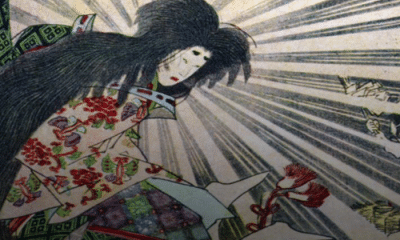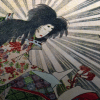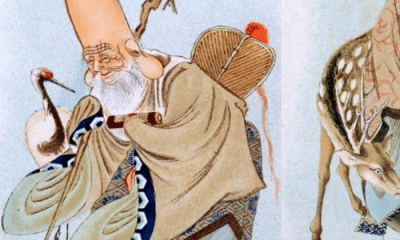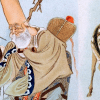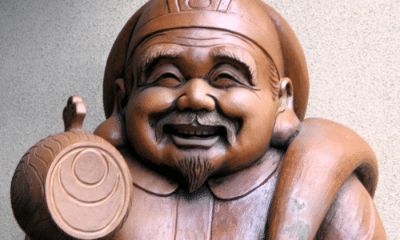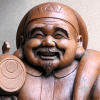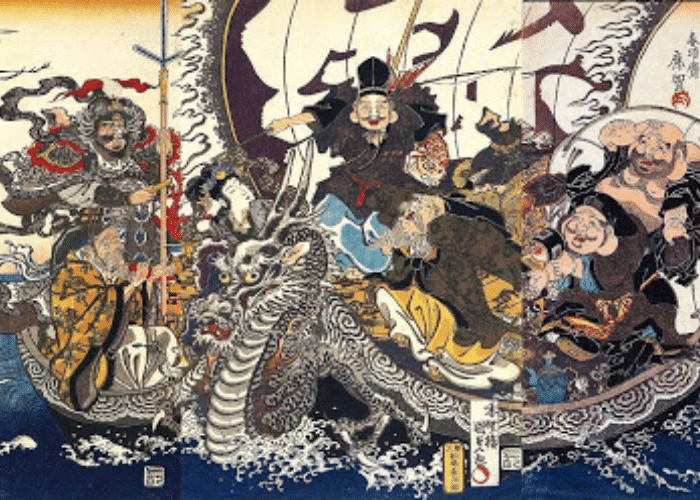
Japanese
Who Are Japan’s Seven Lucky Gods?
Who Are Japan’s Seven Lucky Gods?
The Seven Gods of Fortune are popular symbols of prosperity and happiness, but did you know they have a much deeper meaning?
Japan’s Seven Lucky Gods, or Sichifukojin, appear as a collection of good-natured and helpful deities. Although worshiped individually in Japanese tradition, now they are most often shown together in order to multiply their blessings.
Each of these gods began as a more distant figure but, until the umbrella of the gods of fortune became more personal. They are now recognized as patrons or specific groups and professions within society.
The origins of the Sichijukojin, however, have a far deeper meaning than simple luck.
Each of the seven gods also represents an ideal virtue which, together, can create the ideal person.
Additionally, they represent other cultures entirely. The Seven Lucky Gods bring prosperity not only through their own domains but also by balancing the many cultures that influenced Japanese thought.
The Seven Lucky Gods of Japanese Folklore
Japan’s Seven Lucky Gods have a long history but have only existed in their current form for a few hundred years.
The individual gods have been recognized for over a thousand years in Japan. They were first mentioned collectively however, in the 15th century.
Each of the gods has his own specific domain. As a group, however, they represent virtues held in the highest esteem by Japanese culture.
Ebisu is the god of prosperity in business and agriculture. He is also the patron god of fishermen, so he is shown with a traditional fisherman’s hat and often with a rod or net.
Daikokuten is the patron of cooks and bankers who is usually shown with a bag full of valuables, a wide smile, and short legs. He is also a great demon hunter who traps his prey with sacred talismans.
The god of fortune in battle is Bishamonten. He is dressed as a warrior and carries a spear and a pagoda to symbolize the sacred sites he protects.
Hotei is the fat, bald god of children, bar keepers, and popularity. According to legend, he was once a Zen priest but was expelled from his order for immorality, so he carries his possessions in a large bag on his shoulder.
Benzaiten is the only female member of the group and is the patroness of artists, writers, dancers, and geisha. She carries a traditional stringed instrument and is shown as a beautiful and prosperous young woman.
Jurojin is the god of old age and longevity. He is believed to be the only one of the Seven Lucky Gods to be based on a historical figure.
While those six gods are always named among the Lucky Gods, two others are interchangeable.
Fukurokujo is the traditional seventh god of the group. His attributes and domains are similar to those of Jurojin.
Beginning in the 1700s, the goddess Kichijoten sometimes replaced Fukurokujo. She represents beauty and fertility.
The Seven Lucky Gods are almost always shown together, where they are jovial and friendly. One of the most common images of them is aboard the Treasure Ship, which they sail to human ports every New Year’s Eve.
Images of the gods are still popular in Japan, where they symbolize prosperity and protection. The number seven itself is considered lucky in Japanese culture, so the gods are typically shown as a group to increase this benefit.
My Modern Interpretation
While the Seven Gods of Fortune are an iconic part of Japanese folk tradition, their origins are not necessarily from the island nation.
According to legend the shogun Iemitsu Tokugawa ordered a Buddhist priest in his service to find those who possessed the virtues he held most dear. His seven perfect virtues were longevity, mercy, dignity, fortune, popularity, sincerity, and kindness.
The priest, Tenkai, could not find seven exemplars of these virtues in Japan. His Buddhist training, however, made him familiar with other cultures so that he could choose from a wider selection of people.
Ebisu is the only god whose origins are in Japan. The others represent Buddhism, Hinduism, and Taoism.
They also represent balance. There are two gods from each of these traditions when Fukurokujo is included.
He is based on a Taoist hermit who was deified in Chinese tradition. Jurojin was inspired by a Chinese polar god who was closely related.
As a former Zen priest, Hotei is one of the Buddhist gods. He was so well-loved in Japan that it was said that the people revered him even before his religion was brought to their country.
Diakokuten is the other Buddhist deity in the group. His name is a direct translation of Mahakala, a protective manifestation of death and an aspect of Shiva.
Benzaiten has her origins in the Hindu goddess Saraswati. Bishamonten is taken from the Hindu god king Kubera.
The balance of the cultures is disrupted when Kichijoten replaces Fukurokujo because she is inspired by the Hindu goddess Lakshmi. Another grouping emerges when she in included, however.
Diakokuten is sometimes shown in feminine form, particularly when Kichijoten is included. With this, the three goddesses represented the Hindu Trivedi of Saraswati, Lakshmi, and Shiva – the perfect balance of female deities.
While the Seven Lucky Gods may appear to be a simple collection of lighthearted figures, they have a much deeper meaning. They represent the ideal virtues and blessings, which were passed onto Japanese culture by older Chinese and Indian traditions.
In Summary
The Seven Gods of Fortune are a popular motif in Japanese culture. The collection of seven smiling gods are thought to bring blessings and prosperity.
Although all are deities of fortune, they also have their own specific domains. They are patrons of specific professions, age groups, and aspirations within society.
There is slight variation in the grouping. While earlier depictions of the Seven Lucky Gods included Fukurokujo as a god of longevity, some later collections replaced him with the beauty and fertility goddess Kichijoten.
The traditional collection of gods is said to represent the seven perfect virtues that make up a good man. Seven is also a lucky number in Japanese culture, giving layers of meaning to the group.
Additionally, the inspirations for these gods also carry meaning. Only one is indigenous to Japan while the rest represent and even influence of Buddhist, Taoist, and Hindu traditions.
The Seven Lucky Gods can therefore be said to represent the perfect balance of influences that have created Japan. Some is native but the rest represent the best aspects of neighboring religions.
The later inclusion of Kichijoten disrupts this cultural balance, but adds another. The Hindu Tridevi, the three complimentary goddesses, are thus represented to continue the theme of balance and harmony in the Seven Lucky Gods.


